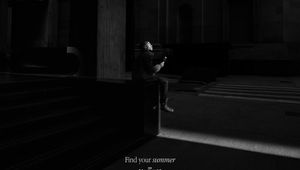
Dove Fights Against Toxic Misrepresentation in Gaming with Epic Spot

A campaign by LOLA MullenLowe and Dove is striving for better representation in gaming. Dove has launched a beautiful and moving short film that depicts the life of a video game character once the game has ended. After defeating an alien, the character goes backstage to her changing room, where she appears uncomfortable with her overly sexualised appearance. However, to our surprise, she removes a body suit and mask that she was wearing, revealing her true and natural self, where she is happier and more comfortable. When the bell rings for her to return to the game, she decides to go back as her real, authentic, and beautiful self.
A series of actions, supported by partners across the gaming industry (including Epic Games’ Unreal Engine education team and Women in Games) seeks to shatter beauty stereotypes and equip the next generation of young creators and players with the tools and educational resources to build self-esteem and body confidence.
The film is based on the real story of Cinthia, one of the four protagonists that the agency has turned into free downloadable characters for any developers, who participated in the campaign launch and are a part of the Dove and Getty Images' #Showus image bank. The campaign is accompanied by a series of key visuals featuring other avatars inspired by real women from the Dove image bank, showcasing real beauty
The campaign is inspired by a new research study from Dove, in association with Women in Games, which shows that 60% of girls and 62% of women feel misrepresented in games, with over one-third of young girls' self-esteem being negatively impacted by lack of diversity in avatar characters. The film is also supported by the statistic that 74% of women wish for more inclusivity in female video game characters, followed by the brand's end-line 'Let's Change Beauty.'

Leandro Barreto, Dove global vice president, said: "Dove believes that beauty should be a source of confidence, not anxiety, in every aspect of life, both real and virtual. Although the games industry has made significant strides to become more inclusive, progress needs to be accelerated to challenge the narrow definitions of beauty still visible in the virtual world. Together without partners, we hope to make a real impact on the millions of women and girls who spend their free time playing games."
Tomas Ostiglia, executive creative director at LOLA MullenLowe says: “This represented an opportunity for Dove to talk about inclusion and representation in gaming, using animation for the first time ever.”



















